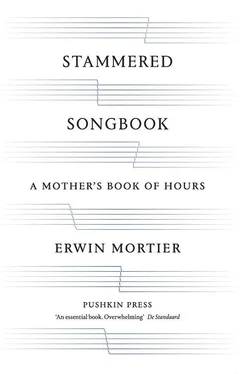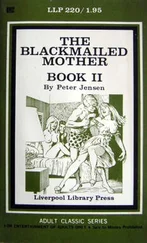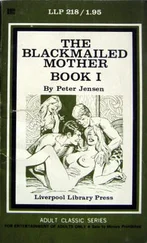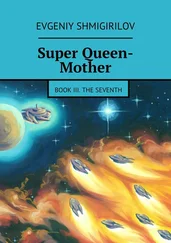And yet he is still “there”, in me, as a kind of nebula, a constellation of images, impressions, sounds, smells and stories handed down by others. Time does not unite us in oblivion but unravels us into memories. I only started writing properly, I suspect, when I began to realize that words are at their best when I can make them vibrate like minute compass needles in response to those elusive magnetic fields that constitute someone’s whole “being”—rather like the way iron filings form patterns on a sheet of paper under which a magnet is held. From the cloud that my mother is becoming and that in fact she already is, slivers of images will shoot out unexpectedly, strangely sharp — the way she laughed, the gesture with which she arranged a lock of hair behind her ear… And then we will say: yes, that’s how she was.

Every year at the approach of winter she became restless. She began rattling the saucepans louder than usual. More washing-up broke in the washing-up bowl than outside it. We were apprehensive of the impatience smouldering in her. Her hands were looser, slaps flew all around. We were never really afraid of her ticking us off: too half-hearted, too soft.
She started taking long walks through the fields, to sniff the smell of the potato tops that had been set on fire. A smell that, like no other, reminded her of autumn. Then when we came home from school the bread was on the table, untouched in its paper bag, the jam, the sugar, the milk and the coffee in the thermos taken from cupboards and trestle tables and hastily put on the table in scattered array, and she was gone. It was a regular pattern. The overcast October skies, the first storm. The mysterious departure of the swallows reminded us that her wintry summer was beginning.
The winter was her spiritual high season, a feast of chilliness that I share with her. It’s best if it freezes your socks off. The branches of the trees must sway stiffly to and fro in the wind. Everything must be tight, fixed in the crystal silence, and the light must be pale and bony and reflect my sadness and impossible longings. When it’s freezing I think of the dead and sons I shall never have, however much I spin them round in the summer of my imagination, throw them in the air and catch them. My sons, who will never grow taller than me, and will never hear the sighing in the bare branches, of the wind perhaps, the freezing cold, or the lame voice, the blue lips of the father I am not.
I remember her jealousy watching the figure skating championships on the first television we owned, a humming black-and-white box with a capricious character which sent us from channel to channel entirely as it pleased. The news gave way without any prior announcement to a fuzzy trapeze act in some Russian circus, followed by a drink-sodden Slav in a precarious imitation of Edith Piaf. The thing was connected to a wobbly aerial in the attic. The Belgian channel had the best reception when the aerial was reinforced by the winter coat of my late great-grandmother, which we hung, coat hook and all, from one of those steel antennae. The reception of foreign stations, besides being heavily dependent on the weather and the ancestral wardrobe, was greatly influenced by the number of pigeons squabbling or copulating in the gutter.
She watched the figure skating in a state of trance-like concentration. There was a hint of Schadenfreude in the sigh of disappointment with which she greeted a fall.
If it froze for long enough, she unearthed her skates from a dusty box at the bottom of the wardrobe. She got out her bike. She tied the skates to the carrier and disappeared. She took the same route I took as a child, when I biked to school, through the woods.
The woods were a different world, a good counterweight to the mindless atmosphere I have encountered in all the classrooms in my life. The woods were rampant; they disseminated the smell of excess, a tangle of survival and decay. The local, half-senile baron had neglected logging for years. The woods had closed ranks. The dead-straight avenues laid out by enlightened squires two centuries before to introduce order and rhythm into nature had gradually become completely overgrown. Here and there the contours of an antique amphora on a moss-covered pedestal betrayed the point where several avenues had once converged. The château farms were some way off the road in a disorderly fringe of overgrown bushes against the edge of the woods, surrounded by a few plots of orderliness. In the summer cocks crowed in the farmyards. Pigeons circled above the cultivated fields.
Slightly less than two hundred metres further on, the woods gave way to the bank of an extensive stretch of water. As a child she came here to swim with the children of the tenant farmers without realizing that her forefathers had dug out this hole in the ground spade by spade to extract peat during the famine years in the mid nineteenth century. In order to combine usefulness and pleasure the baron had the workers pile up the earth they had dug out in three mounds. On one of them he built his pleasure garden. The other mounds were surrounded by water and planted with trees.
She always forbade us to swim there, because of the boggy ground. In digging out the layer of peat an underwater current was exposed that could carry swimmers away with it. In the winter too she was on her guard. She would wait till three or so skaters were flashing over the surface of the ice before she left the bank and made for her favourite spot: a broad creek cut off from the rest of the pond by a long dam between one of the islands and the grounds of the country house. The trees by the water’s edge were pock-marked with age. They spread their gouty branches across the water. Almost no one would disturb her there. Most skaters thought that the bay belonged to the country house. No one would spy on her.
First she skated in big circles. She took a run-up, suddenly made a sharp turn and then spun a few times around her own axis, until she fell over.
She always fell. Once, when I was with her, the surface of the ice creaked ominously. I pressed flat against the ice with arms and legs outstretched, like her. I could hear the cracks creeping farther for a number of seconds. I felt like a fly in a huge, chaotic web of fault lines.
Bad ice doesn’t creak, our father always said, she said. It swallows you up without a sound. Good ice has to settle.
Don’t worry about that creaking.

It will go out gently, he says.
It will all go out gently.
And then she won’t recognize me any more either.

Last night I dreamed that it had snowed heavily and was very cold, a frosty night, and that she wanted to play outside, in her nightdress. She danced through the garden barefoot in the snow, and hid in a hollow tree trunk. She wanted to sleep, she said, and there was no moving her, while it got colder and darker.
I heard someone, perhaps my father, say that she no longer had any awareness of cold or time, and it might be best if we let her sleep. We went inside and left her behind.
In the morning I went into the garden. The snow had receded. It was an early spring day. Between the bare tree trunks and the blooming, shining-white wood anemones I saw children who seemed at once very young and ancient romping over the paths. They cooed and screamed and had identical white dressing gowns on. One of them danced past me exuberantly and mumbled something. I knew it was my mother.
Читать дальше













